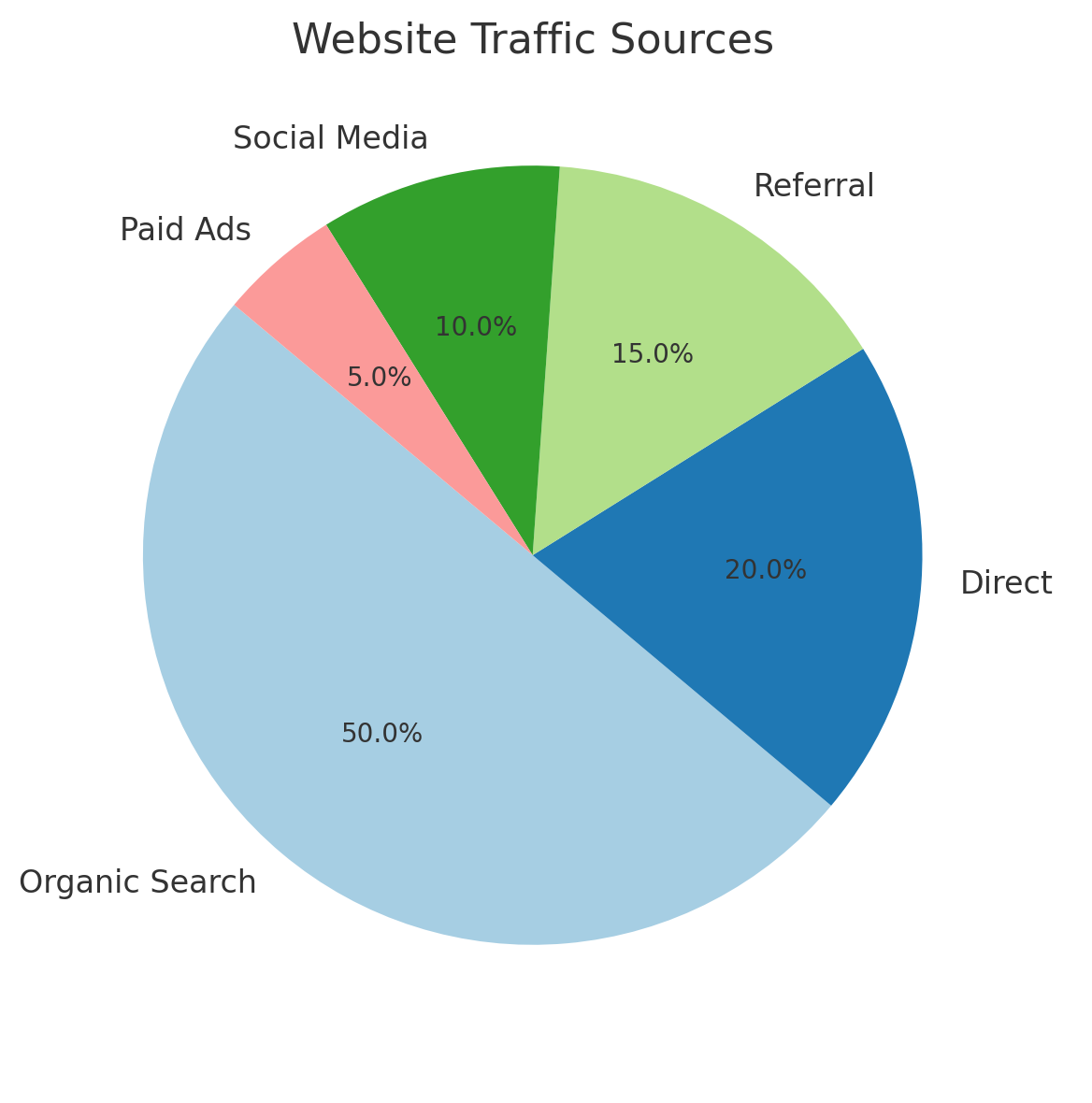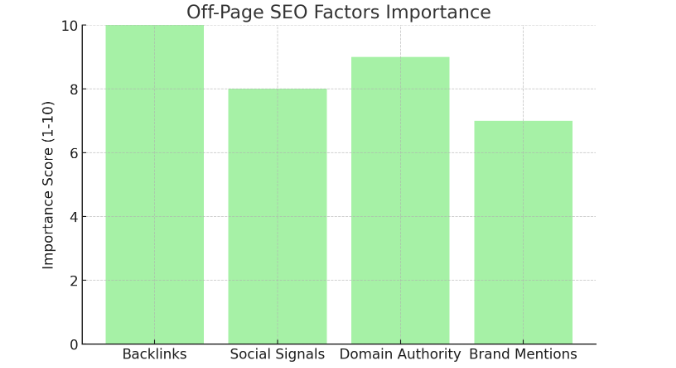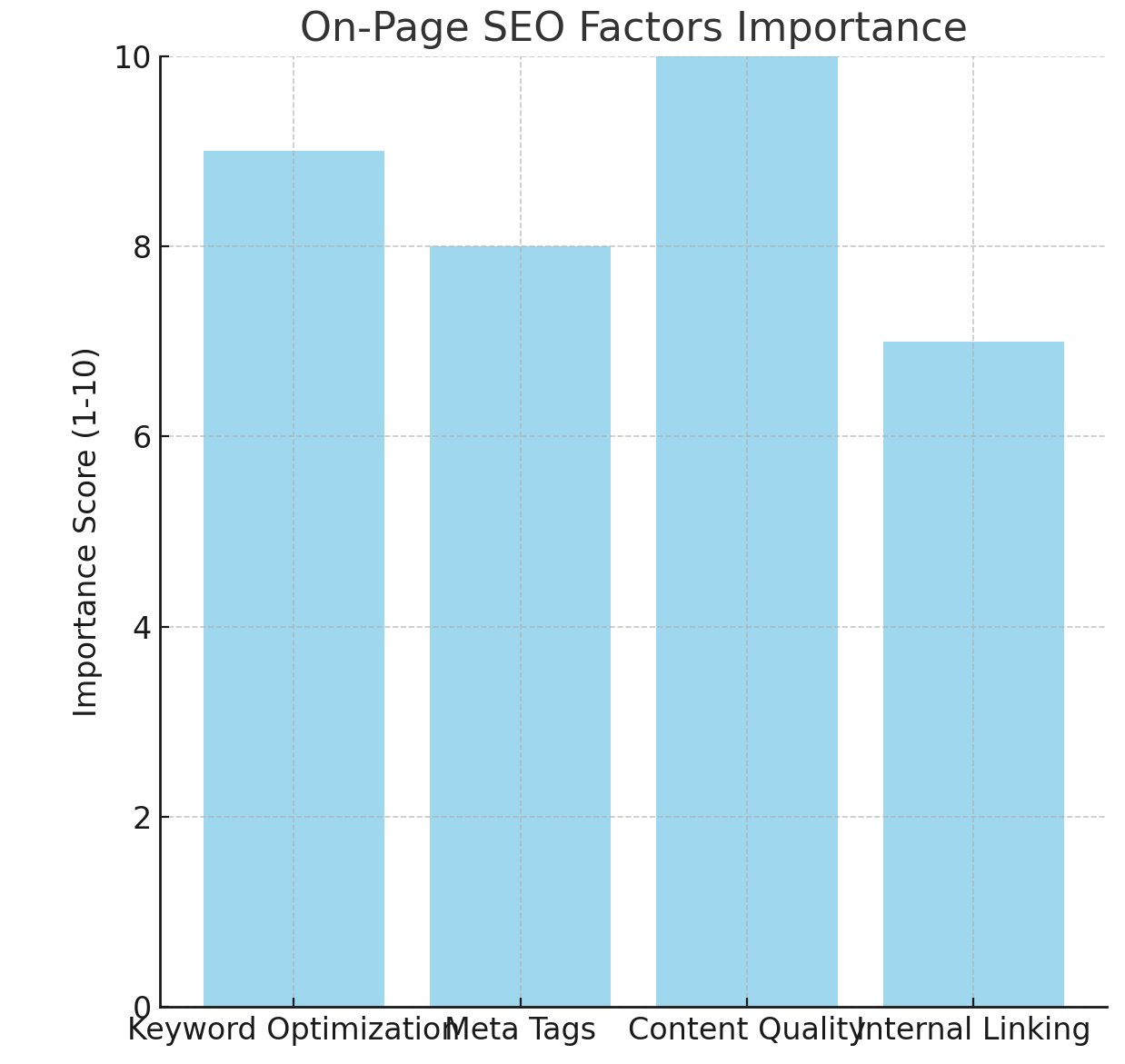Have you ever wondered what SEO is and how does SEO work? Search Engine Optimization (SEO) is a continuous effort that focuses on optimizing both your website’s content and technical structure. By implementing a robust SEO strategy, you can boost your site’s visibility, establish trust with your audience, improve user experience, and attract quality traffic that is more likely to convert into customers. As search engine algorithms advance, businesses prioritizing SEO gain a competitive edge with sustained growth in website traffic and conversion rates.
In this blog, we’ll explore what SEO is, how it functions, and why it plays a critical role in your marketing strategy.
What is SEO?
The term “SEO” stands for “Search Engine Optimization.” It is the practice of optimizing a website’s content according to Content policies for Google and other search engines so that it ranks higher in search engines. Search Engine Optimization (SEO) is the process of enhancing your website’s visibility in search engine rankings, enabling you to attract more organic traffic. SEO involves several strategic steps, such as keyword research, content creation, and authority building, all designed to attract visitors by offering valuable, relevant content.
Search engines are the gateway to information, products, and services. Google alone handles over 3.5 billion searches per day, making it critical for businesses to optimize their websites for search engines to stay competitive. A robust SEO strategy can help your site rank higher in search results, which directly impacts your website traffic, exposure, and ultimately, conversion rates.

How SEO Boosts a Website’s Success?
Search Engine Optimization (SEO) plays a crucial role in determining how well a website performs. Whether you’re running an e-commerce platform, a blog, or a service-based business, SEO can significantly impact your success by enhancing your site’s visibility, attracting high-quality traffic, and improving conversion rates.
Here’s a breakdown of how SEO can help transform your website:
1. Greater Visibility
SEO strategies are designed to enhance your website’s visibility in search engine results, making it easier for potential customers to find you. With over 90% of online activities starting with a search engine, being discoverable is vital for attracting users. However, achieving this visibility can be daunting, especially for businesses with limited resources.
Your website’s design and content quality play pivotal roles in determining the success of your SEO efforts. A key element in improving visibility is optimizing on-page elements such as well-researched keywords, meta tags, and structured content. These enhancements help search engines like Google understand your content, boosting your chances of ranking higher for relevant searches.
For instance, a study by Junto reveals that 57% of B2B marketers find SEO more effective at generating leads than any other marketing strategy, underscoring its importance for business growth.
2. Increased Quality Traffic
When your SEO strategies are implemented effectively, you not only increase the volume of traffic to your site but also the quality of that traffic. The goal of SEO is to bring in relevant, qualified visitors who are genuinely interested in what you offer. This is achieved through the use of targeted keywords and content that answers the questions or solves the problems of your audience.
According to a report from BrightEdge, 68% of all online experiences begin with a search engine, and organic search drives more than 53% of total site traffic. This means that a well-optimized site has a much higher chance of attracting visitors who are likely to engage with your content or make a purchase, unlike the often more generalized audience attracted through paid ads or social media.
3. Increased Conversion Rates
One of the greatest benefits of SEO is its ability to attract organic traffic—visitors who discover your site through unpaid search results. This type of traffic often converts at higher rates than traffic from sources like social media or paid advertising. HubSpot research highlights that inbound leads generated via SEO cost 61% less than outbound leads, and these visitors are significantly more inclined to make a purchase.

Organic search users are typically deeper into the buyer’s journey, actively seeking solutions or products that match what your business offers. This makes them prime candidates for conversion. By refining your SEO strategies, you’re not only enhancing your website’s visibility but also drawing in visitors with a higher likelihood of completing a purchase, boosting your ROI and overall growth.
How Does SEO Work?
SEO is the backbone of digital marketing and has evolved significantly over the last 15 years. For a website to rank at the top of search engine results pages (SERPs), two main strategies must be employed: on-page SEO and off-page SEO. These methods complement each other, ensuring your site is both search engine-friendly and popular among users.
1. How does On-Page SEO Work?
2. How does Off-Page SEO Work?
Off-page SEO involves actions taken outside your website to improve its ranking. The primary focus of off-page SEO is link building, which signals to search engines that your website is trusted and authoritative. Here’s how it works:
- Backlinks: High-quality backlinks from reputable websites act as “votes of confidence” for your content. These links signal to search engines that your site is credible and worth ranking higher in the search results. In fact, a study by Backlinko revealed that pages with more backlinks tend to have significantly higher rankings.
- Social Proof and Shares: Off-page SEO also involves building relationships with influencers and authoritative sites. Sharing your content on social media and earning mentions from other platforms boosts your site’s exposure and credibility, which indirectly helps with rankings.
- Guest Posting and Partnerships: Building relationships with other bloggers and businesses to create guest posts or collaborations can lead to more backlink opportunities. This is crucial in growing your digital presence.

Link building isn’t just about getting any link; the quality of the links matters. Search engines use these links to determine how authoritative and relevant your content is in relation to others in your niche.
The Evolution of SEO
SEO has undergone a massive transformation since the early days of algorithmic search engines. In the beginning, search engines relied on simple keywords to match search queries with web pages. Over time, the sophistication of search engine algorithms has evolved. Today, Google’s algorithm takes into account over 200 ranking factors to determine the most relevant results for a search query.
One of the major advancements in recent years is the ability of search engines to use AI-powered algorithms, like Google’s RankBrain, to interpret user intent behind search queries. This means that modern SEO not only revolves around specific keywords but also focuses on content relevance and user experience.
Why SEO is Crucial for Website Success?
You have now learned how does SEO work? SEO is not just about placing the right keywords in your content; it’s about delivering value to users and meeting the criteria that search engines use to rank websites. Here’s how SEO benefits your business:
- Improved Website Traffic By optimizing your website for search engines, you increase the chances of appearing in relevant search results, driving more traffic to your site. Research shows that 75% of users never scroll past the first page of search results. Therefore, the higher your site ranks, the more likely it is to get clicks.
- Enhanced User Experience Good SEO practices also improve the user experience on your website. For example, optimizing for mobile-friendliness, improving page load times, and creating easy-to-navigate content all contribute to a more enjoyable experience for users, which search engines like Google reward with higher rankings.
- Increased Credibility and Authority Building authority is a critical part of SEO. Search engines favor sites that are recognized as credible and trustworthy sources of information. This is why link-building, social proof, and consistent content creation are essential to gaining E-A-T (Expertise, Authority, and Trustworthiness)—an important factor in Google’s ranking algorithm.
- Higher Conversion Rates Traffic from organic searches tends to convert better than traffic from other sources. According to Moz, organic search yields 20x more traffic opportunities than paid search on both mobile and desktop. SEO-driven traffic typically consists of visitors who are actively looking for specific information, products, or services, increasing the likelihood of conversions.
If you need any help to improve the SEO rank of your website you can consult with Technosmith, the fastest-growing digital marketing company.
Conclusion
SEO is the process of making your website more visible, user-friendly, and authoritative. Both on-page SEO and off-page SEO are essential to achieving higher search engine rankings and driving more organic traffic to your site. As search engines evolve, it’s crucial to stay updated with the latest SEO techniques, focusing on quality content, reliable backlinks, and a seamless user experience. SEO is a continuous journey that demands time, patience, and consistent effort. However, when executed effectively, it can revolutionize your website’s performance and fuel long-term growth.
By combining robust on-page SEO—focusing on content and technical elements—with strategic off-page tactics like link building and social signals, businesses can not only enhance their online visibility but also secure a competitive advantage in their industry.


